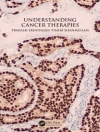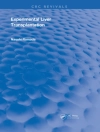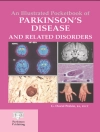The coronaries are the first branches of the ascending aorta. They arise from their respective sinuses of Valsalva, and gradually branch distally to the myocardium.
Abnormalities of the coronary arteries, either congenital or acquired, can be characterized as a lack of origin, abnormal origin, anomalous course, lack of patency, abnormal connections, and/or abnormal drainage of the coronary vessels. Interruptions to or lack of flow can cause significant morbidity and mortality due to ischemia, infarction and fistulous connections, which can lead to cardiac failure, endocarditis and ischemia.
Coronary artery anomalies are rare in general populations. Although they can be benign and asymptomatic, they can also be malignant due to their origin and course and can cause sudden cardiac death. As such, an understanding of how to analyze, diagnose and treat them is vital.
This book presents the latest advances in congenital anomalies of coronary arteries. It offers a comprehensive overview of the field, including illustrative angiograms and diagrams that demonstrate all possible anomalies and clarify what is abnormal, and also provides practical insights to guide practitioners in their everyday practice.
Mục lục
I From Embriology to diseases.- 1 Embriological development of normal coronary arteries.- 2 Normal and abnormal coronary artery anatomy.- 3 Normal coronary flow physiology.- 4 Myocardial bridge(s).- 5 Isolated coronary artery fistulas
.- 6 Coronary artery abnormalities associated to congenital or non-congenital heart disease.- 7 ALCAPA and ARCAPA.- 8 Aortic anomalous origin of coronary arteries.-
II Diagnosis and risk stratification.- 9 Role of patient’s hystory and non invasive tests in the workflow of patients.- 10 Role of CT and MRI.- 11 Role of stress echo and other provocative tests.- 12 New techniques to stratify pts with AAOCOA.- 13 Role of invasive and provocative tests in the workflow of patients (coronary angiography, IVUS, FFR and others)
.- 14 The young atlete with coronary artery anomalies: how to detect and what to do.- 15 AAOCOA in children: how to search for and what to do.- 16 AAOCOA and sudden death
.- 17 AAOCOA and arrhythmias.-
III Modelling and treatment(s).- 18 How Computational modeling may help in decision making and mechanism under standing.- 19 How Computational modeling may help in decision making and mechanism under standing
.- 20 data from registries : North American perspective.- 21 data from registries: European perspective
.- 22 UK registry study on AAOCOA.- 23 Surgical techniques in AAOCOA.- 24 Pre and post-operative care.
Giới thiệu về tác giả
Gianfranco Butera is director of congenital interventional cardiology and pediatric cardiologist at Bambin Gesù Hospital since January 2021. He has been the lead in the same field at St Thomas’s and Evelina Childrens’ Hospital since november 2018. He previously worked at San Donato Milanese Hospital and Hospital Necker Enfants Malades – Paris. He graduated in both Pediatrics and Cardiology in Italy, and completed his training in Pediatric Cardiology in Paris (France). He is active in numerous professional national and international scientific societies, including the European Association of Pediatric Cardiology and the Society of Angiography and Catheterization. He served as Chairman of the AEPC’s Interventional Cardiology Working Group. His clinical and research interests are focused mainly on interventional cardiology in children and adults with congenital heart disease, and he has published more than 200 papers in peer-reviewed journals. He is the Editor of widely published international books on interventional and fetal cardiology and has been a Visiting Professor at various Universities, including Padova, Modena, Parma, Milan, Harvard, Bordeaux, Bejing.
Alessandro Frigiola is Director of the Pediatric Cardiac Surgery and Congenital Heart Disease in Adults Department– IRCCS Policlinico San Donato, and of the International Cooperation Department.
He is a leading expert in cardiac surgery for congenital and acquired heart diseases both for children and adults, and has performed over 12, 000 surgical procedures. He specializes in surgical repair of the mitral valve and the aorta (over 1, 000 operations).
An AATS member, he is one of the most experienced Italian and European surgeons for the Ross procedure (replacement of aortic valve with the pulmonary valve from the same patient). For over 25 years, he has been engaged in international cooperations for the development of cardiac surgery in 18 countries around the globe, performing more than 400 surgical missions.












